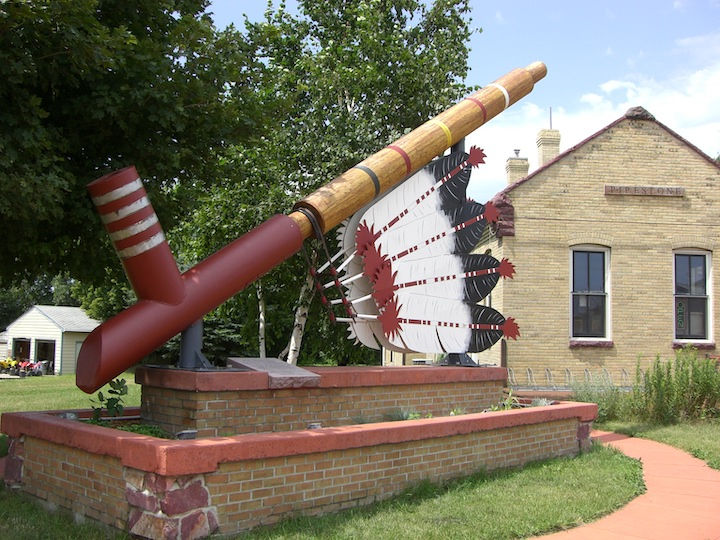How will you celebrate Columbus Day?
- Kenneth Cohen
- Sep 22, 2011
- 2 min read

On September 22, 1973, Ojibwe activist and artist Adam Fortunate Eagle landed in Italy in full regalia, and planting his ceremonial spear in the ground, took possession of that country by "right of discovery" (as established in European law). To the credit of Native American peoples (and contrary to the colonial history of Europeans in the Americas), since the discovery of Italy, neither land nor people have been pillaged. There has been no enslavement, and taxes and other levies have not been imposed. From the beginning of its civilized history, nearly 40 years ago, there has been no attempt to forcibly educate or convert Italian people, although the Pope did have the nerve to present his ring to Mr. Fortunate Eagle when they met. It was a stand-off, as Mr. Fortunate Eagle presented his own turquoise ring to the Pope. Neither graced the other with a bow or a kiss. Indeed, Native American tribal courts have treated Italians fairly, and never questioned their humanity (Native Americans were not categorized as human beings in U.S. courts until the late 1800s). Considering all of this, it is a travesty that there is no "Adam Fortunate Eagle Day" celebrated in Italy or the rest of Europe.
If the United States has a Columbus Day, shouldn’t Italy have a day to commemorate the discovery of their country? Or better yet, replace Columbus Day with Indigenous Peoples Day! Postscript:
Learn more about this great man, perhaps best known for inspiring and leading the occupation of Alcatraz in 1969, in the film Contrary Warrior: The Life and Times of Adam Fortunate Eagle. My wife and I had the honor of enjoying the hospitality of Mr. Fortunate Eagle and his wife and the beauty of their art gallery in the fall of 2011.
Why we should replace Columbus Day with Indigenous People’s Day: The Unitarian Universalist Association writes: "Indigenous Peoples Day re-imagines Columbus Day and changes a celebration of colonialism into an opportunity to reveal historical truths about the genocide and oppression of indigenous peoples in the Americas, to organize against current injustices, and to celebrate indigenous resistance. The idea of replacing Columbus Day with Indigenous Peoples Day was born in 1977, at a U.N.-sponsored conference in Geneva, Switzerland, on discrimination against indigenous populations in the Americas. Fourteen years later, activists in Berkeley, CA, convinced the Berkeley City Council to declare October 12 a "Day of Solidarity with Indigenous People." Henceforth, there has been a growing movement to change "Columbus Day" into "Indigenous People's Day"; states such as South Dakota, Hawai’i, and Alaska have changed the holiday’s name and many more cities have taken similar action.




Comments